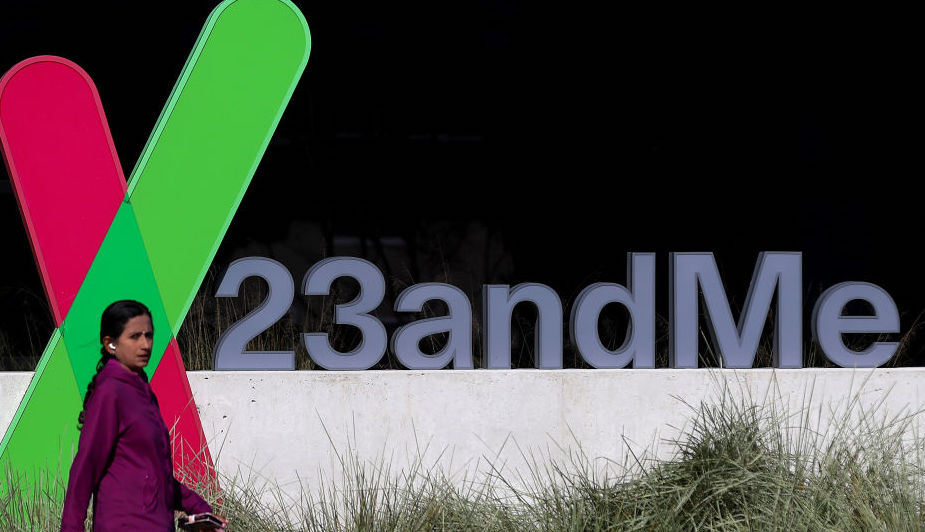Who wants to buy the genetic code of 14 million Westerners? DNA sequencing company 23andMe has filed for bankruptcy protection and is now up for sale. Users are now being advised to delete their accounts, though for many this advice arguably comes too late. But the real privacy concern should be the geopolitical one. In this context, the potential sale of millions of DNA sequences, most of them American, could sharpen a burgeoning debate in the US tech industry over which, if any, national loyalties Silicon Valley should espouse.
Founded in 2006 by Anne Wojcicki and two partners, 23andMe offers consumers the opportunity to send a saliva sample for sequencing, and receive a report on ancestry and health information. Despite celebrity endorsements and a valuation of $6 billion after listing in 2021, the company has never made a profit and is now seeking a buyer.
So, what will happen to its databases? 23andMe always emphasised its trustworthiness on data protection. But when it went public, privacy experts raised concerns over the increased number of shareholders with possible interests in bending the firm’s privacy rules to access its data. Last month, the undercover media outlet O’Keefe Media Group published a video conversation with a US Treasury advisor, who warned that the firm shares its data with shareholding companies, some of which are — he claims — owned by the Russian or Chinese governments.
Even if this is speculation, the firm’s own data policy states that, in the event of sale or bankruptcy, customers’ data is a saleable asset. California’s Attorney General has now advised anyone who has used the service to delete their account and data, and, if their saliva sample was stored, to request it be destroyed before the company is sold. But around 80% of 23andMe users have already consented to their DNA being used in research. And as one reporter noted after using the service, users who have given this consent cannot later revoke it. While the firm promised that data for medical research was only ever made available in anonymised form, whether this will remain the case is anyone’s guess. As a consumer-facing firm, 23andMe traded on its trustworthiness. Should its buyer start trading with businesses rather than individuals, all the incentives on privacy will flip, with the dataset more valuable the less privacy is afforded the individuals whose data it contains.
But what if the real concern isn’t individual privacy but national security? For while we are surely well into the age of Big Data and biotech, every day also brings a new headline underlining the fact that this is occurring in tandem with a return to great-power politics. Based on where it ships, 23andMe serves, in essence, wealthy, tech-curious consumers in the West: America and her allies. It’s not hard to imagine a hostile regime acquiring its database with malicious intentions, such as bioweapon development.
In his new book The Technological Republic, Palantir CEO Alex Karp critiques what he views as a naively universalist outlook in the US tech industry, as though global peace and transnational commerce are somehow guaranteed, forever. Karp disagrees, arguing instead that the American tech industry must abandon its squeamishness about defence, and urgently refocus on the national interest.
Was 23andMe an instance of such naive universalism? Doubtless Wojcicki only ever thought of 23andMe’s dataset in commercial, win-win terms: a source of benefits all round, whether from research, customised healthcare, or personal profit. A hostile polity exploiting a database containing millions of complete American genomes to as yet unimaginable military ends would have seemed like science fiction only a few years ago. But if Karp is right, this is no longer so far-fetched. Perhaps the real questions for any potential 23andMe buyer should not concern business intentions, but national loyalties.











Join the discussion
Join like minded readers that support our journalism by becoming a paid subscriber
To join the discussion in the comments, become a paid subscriber.
Join like minded readers that support our journalism, read unlimited articles and enjoy other subscriber-only benefits.
Subscribe